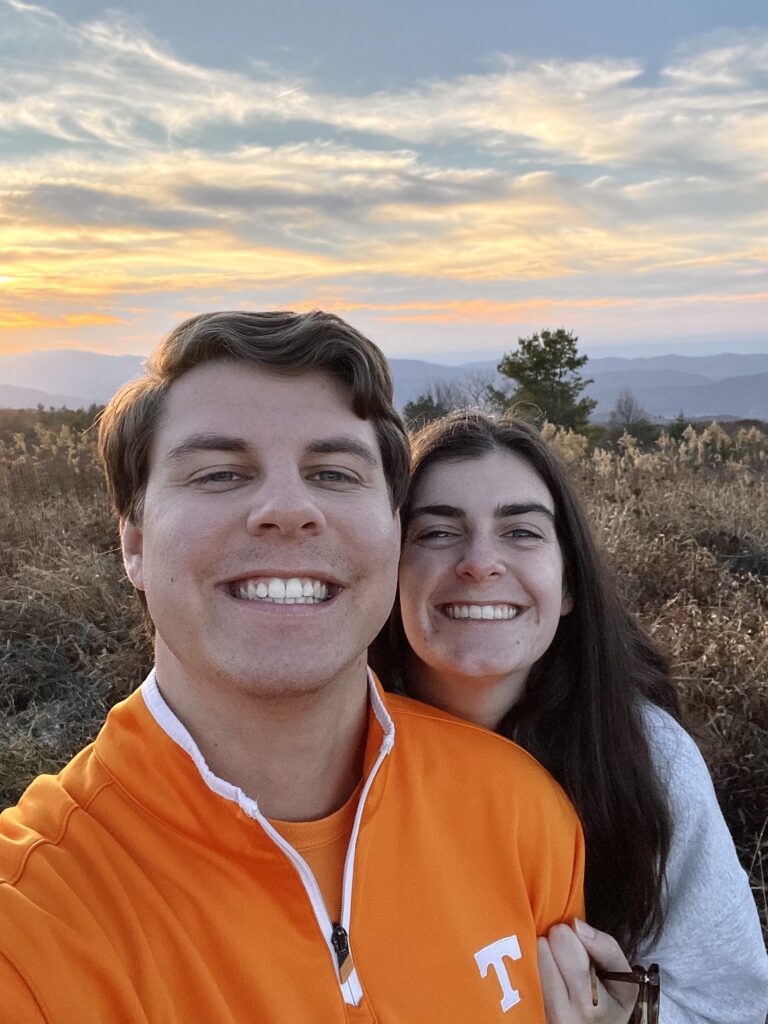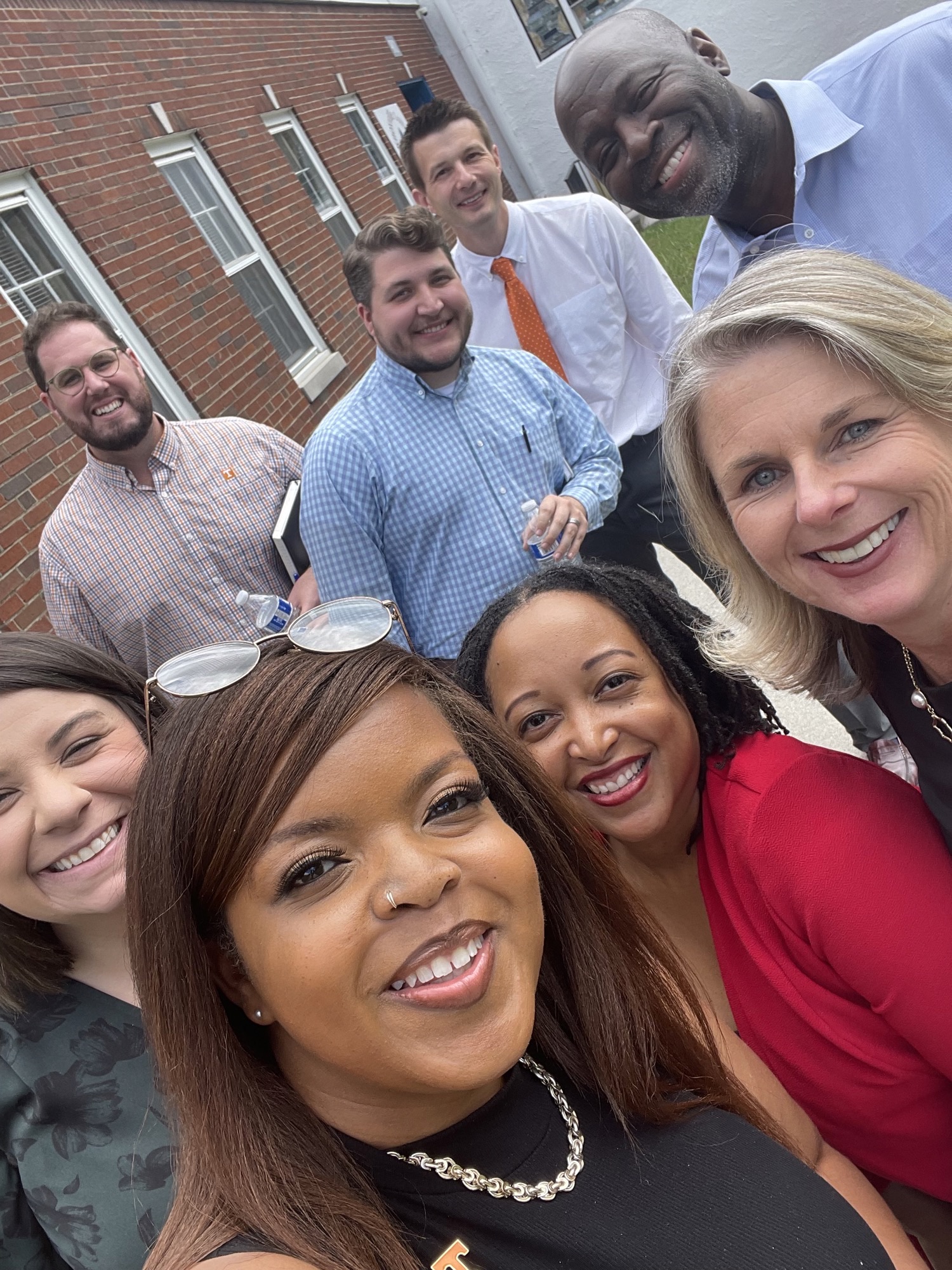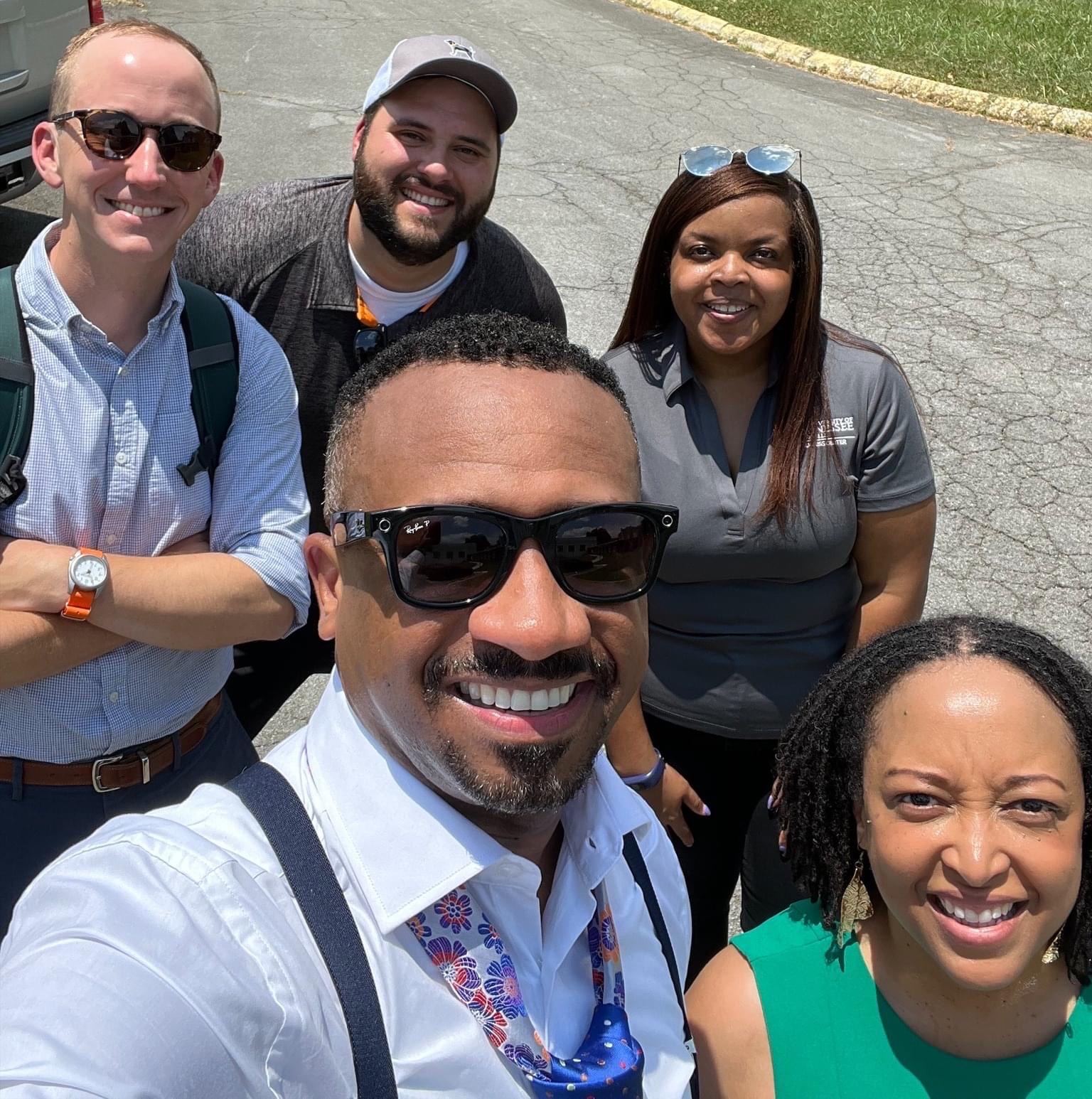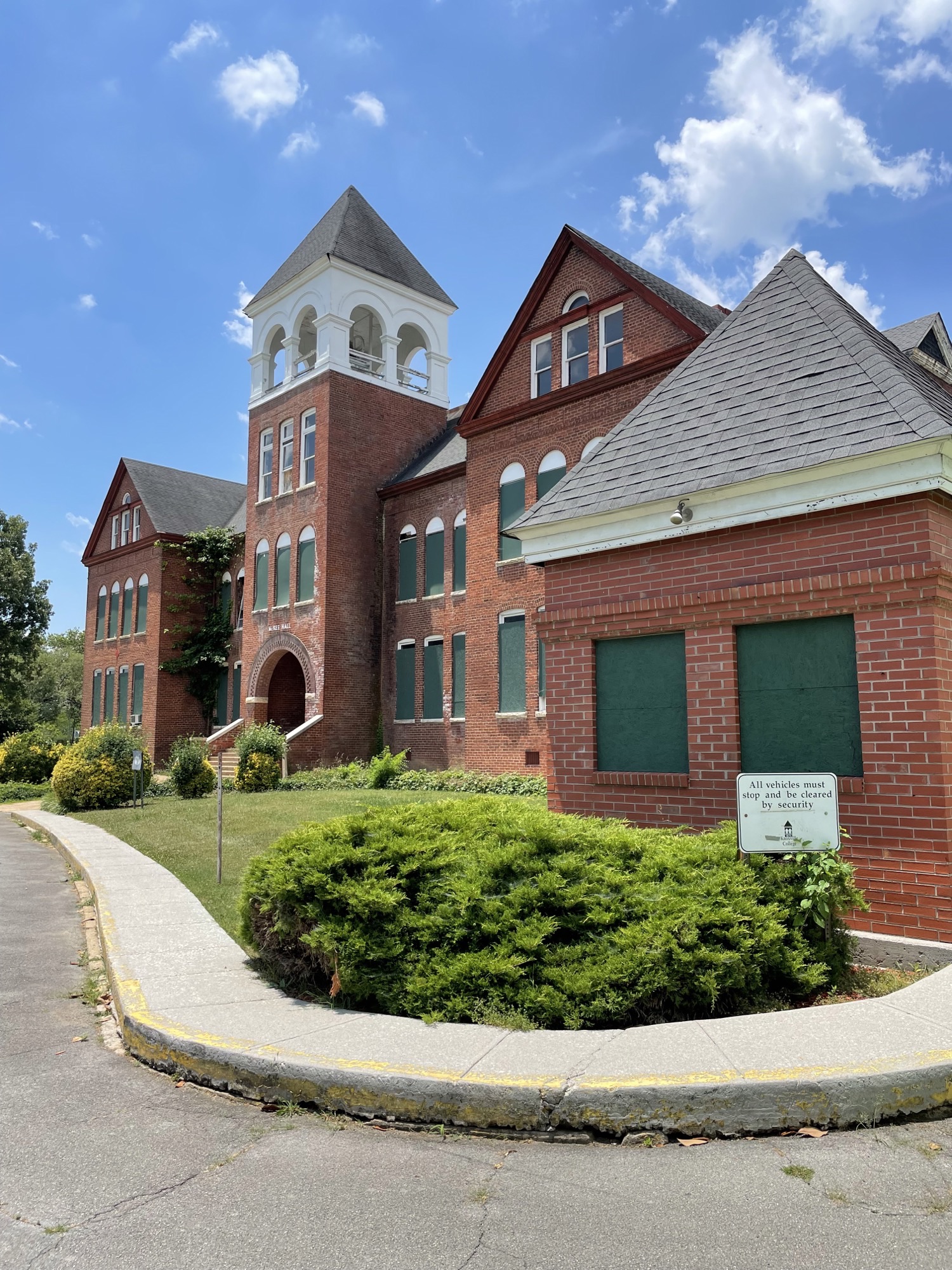“Blissful Wish” Wedding Winners Announced
Experiential Learning Opportunity Provides Couple With a Dream Wedding

For Shelby Guthrie and Jackson Graham, a love of Tennessee Vols athletics sparked a love that went beyond the game. While attending the University of Tennessee, Knoxville, Shelby and Jackson attended every Vols athletic event they could: football, basketball, tennis, baseball, and softball. If there was a game, Shelby and Jackson were there. The more time they spent together cheering on the Vols, the closer their bond became. Jackson finished his undergraduate degree in 2020 and his graduate degree in 2021. Shelby finished her undergraduate degree in 2021. Now, these Vols for Life are ready to take the next step in their relationship.
“I would love for Jackson and me to be chosen because it would relieve a huge financial burden, help with planning, and having a UT wedding would be the most “us-thing” ever because we have so many friends and generations of family who have attended the university,” said Shelby.
Not only will Shelby and Jackson have the wedding of their dreams, students from the University of Tennessee, Knoxville’s, Hospitality and Tourism Management (HTM) program will be gaining real-world experience in wedding and event planning. HTM students will work with the couple to search and secure a variety of services needed for wedding events, help run the wedding event, and finally evaluate the entire process and outcomes.
“We are beyond excited to offer our first ever Blissful Wedding class which will be a truly experiential, hands-on course. Our students already completed our online wedding design course last year and well-equipped to curate this memorable wedding. We will be there to help guide our students – but this course will be 100% student-directed. We are excited to see what the students will dream up for the deserving couple!” said Stefanie Benjamin, instructor of the HTM 440 Wedding Production and Execution class.
“When an academic department takes on a project like this, the first and foremost important goal is to provide transformational experiences for our students,” said Junehee Kwon, head of UT’s Department of Retail, Hospitality, and Tourism (RHTM). “This is a perfect example of such an endeavor, and I am very excited to support our students, instructors, and the selected couple.
Shelby and Jackson were chosen from 71 completed applications submitted to the Blissful Wish Wedding giveaway. The wedding ceremony will be held on November 9th at the Pavilion at Hunter Valley Farm for up to 75 guests. Current UT employees or their families were not eligible to enter.
A panel of reviewers was selected from members of the Retail, Hospitality, and Tourism Management Advisory Board. After reviewing each application, the Board members met to decide on the winning couple and a runner-up if the selected couple would not be able to participate in the program. To ensure the program followed all University of Tennessee policies and procedures, RHTM faculty, along with staff from the College of Education, Health, and Human Sciences (CEHHS) worked closely with UT’s legal, business, and academic teams.
“We used several criteria when we selected the couple. One of the essential criteria was their willingness to work with our students,” said Kwon. “Their understanding of the purpose is crucial because they need to know why we are doing this event. The purpose will always be the student first, then the community.”
As for Shelby and Jackson, in just a few short months, they will have their dream wedding, thanks to the hard work of HTM students and faculty, as well as the generous support of numerous sponsors. For all involved, the project has been ambitious, but the effort put into making a special day for a deserving couple has been well worth it.
“Since I arrived at UT, I have been aiming to increase experiential learning opportunities for our students while they serve the community,” said Kwon. “This sponsored wedding project, which I proposed, was ambitious, but it would be worth it. We have gone through many steps to get this project approved, and now, I am so grateful to see that we have a deserving couple who will be working with our students and sponsoring partners.”
When it comes to a student-run wedding, Shelby and Jackson are thrilled that they can play a role in this experiential-learning opportunity for HTM students.
“We totally understand that this would be a learning and growing experience for all parties involved, and we would be happy to make decisions and choices that would be beneficial for the students’ education,” said Shelby.
Through its eight departments and 12 centers, the UT Knoxville College of Education, Health, and Human Sciences enhances the quality of life for all through research, outreach, and practice. Find out more at cehhs.utk.edu













